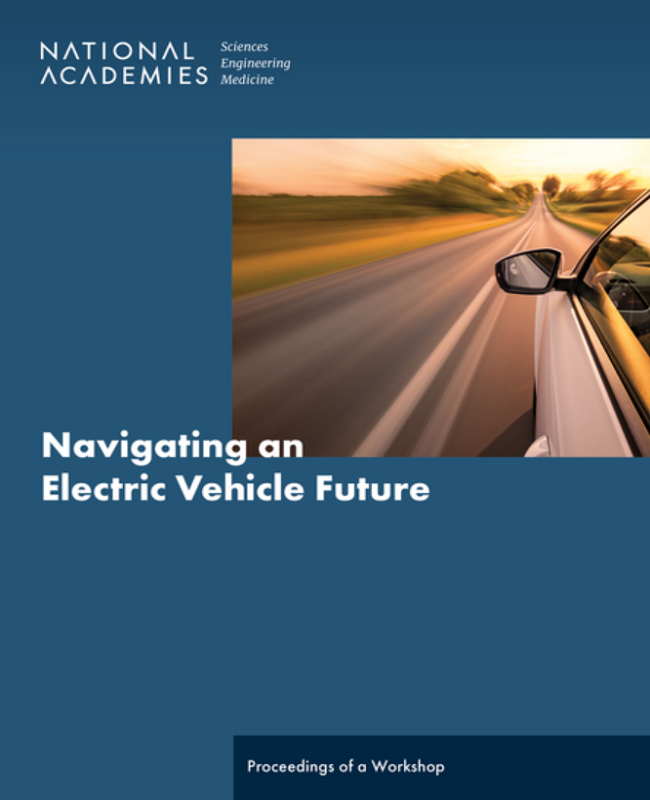The widespread adoption of electric vehicles will play a critical role in decarbonizing the transportation sector as the nation moves toward net-zero emissions. Recent announcements from automakers and the federal government, as well as provisions in the Infrastructure Investment and Jobs Act of 2021, aim to stimulate electric vehicle (EV) deployment, and ongoing technology improvements continue to make EVs a more affordable and practical option. However, many challenges remain to meet the needs of all buyers and drivers and to ensure that manufacturing supply chains and the electric system can support this large-scale transformation.
As a follow-up activity to its 2021 report Assessment of Technologies for Improving Light-Duty Vehicle Fuel Economy – 2025-2035, the National Academies of Sciences, Engineering, and Medicine convened a 4-day virtual workshop on October 25-28, 2021, to identify some of the challenges to widespread EV deployment and discuss policy, technical, and market strategies to help federal agencies and other stakeholders plan for the future. This publication summarizes the presentation and discussion of the workshop.
More About this Resource
Publisher: National Academies
Date: October 1, 2022
Type: Research Reports
Countries: United States
States: None
